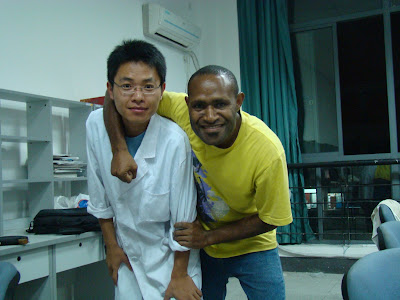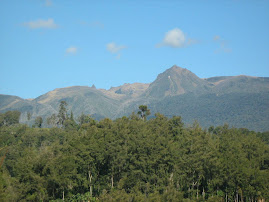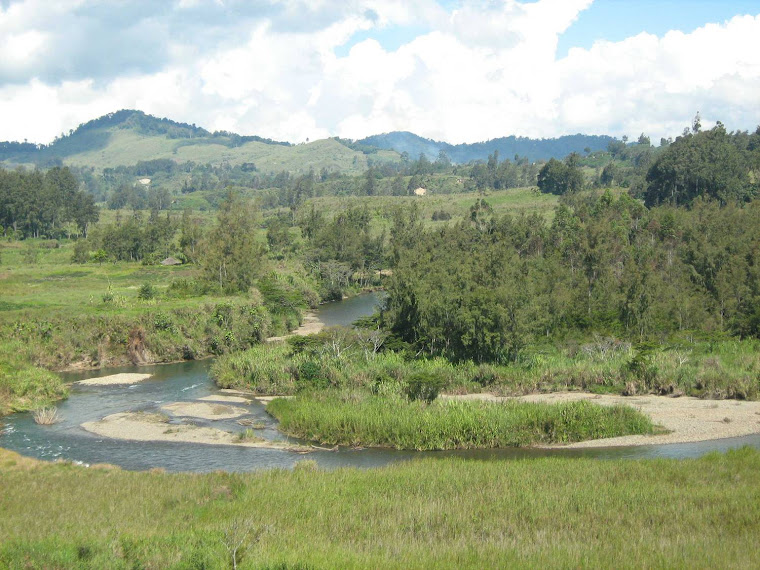 Caption: Maters, PhDs, and post Doctorate candidates posing in front of their Bioprocess and Biosystem Engineering lab with PNG student Gene.
Caption: Maters, PhDs, and post Doctorate candidates posing in front of their Bioprocess and Biosystem Engineering lab with PNG student Gene.Microscopic alga holds future for PNG and region
By Mathew Yakai, Changchun, China
PROMISING young bio-scientist and student in China, Gene Drekeke Iyovo strongly recommends the Pacific island countries, including Papua New Guinea (PNG) to quickly tap into using waste to produce Microalgae Biodiesel instead of relying too much on non-renewable fossil-fuel.
In May this year I featured Gene in my column about his research and the potential it can rescue vulnerable economies when the talk of the day is ‘high cost of fuel’ that digs into family pockets.
Last week, I did a column on him seeking financial assistance to attend a conference in Singapore from 17th to 18th this month on the subject.
Gene is confident that PNG and regional governments have a brighter future in Microalgae Biodiesel.
From Eastern Highlands in PNG, Gene is doing his masters at Jiangnan University of China, School of Biotechnology, under the Chinese Government Scholarship. His research thesis is “Microalgae Biodiesel using waste”.
Gene sent me an email outlining his current research area which I am compelled to devote this column for your reading.
Below is the email I received. Gene says, “microscopic alga holds the key to the future”.
“Energy is the most important commodity in the world today. From a single microorganism (such as bacteria) to plants and man including animals larger than man need energy. Every invented mechanical goods, use energy derived from fuel.
Today, man use vast amount of energy to move goods around the globe, mechanical vehicles require energy to transport goods to consumer at a price.
The world has moved so fast in industrializing and more fossil energy reserves are being used up, a count down on reserves or supply is increasing prices of goods and services directly or indirectly.
Decent life is measured against fuel.
Are we adequately preparing for the inevitable fuel shortage? The most important thing is to get a clear picture of the situation we're in and the outlook for the future ... an appraisal of where we are and what the time scale is.
By Mathew Yakai, Changchun, China
PROMISING young bio-scientist and student in China, Gene Drekeke Iyovo strongly recommends the Pacific island countries, including Papua New Guinea (PNG) to quickly tap into using waste to produce Microalgae Biodiesel instead of relying too much on non-renewable fossil-fuel.
In May this year I featured Gene in my column about his research and the potential it can rescue vulnerable economies when the talk of the day is ‘high cost of fuel’ that digs into family pockets.
Last week, I did a column on him seeking financial assistance to attend a conference in Singapore from 17th to 18th this month on the subject.
Gene is confident that PNG and regional governments have a brighter future in Microalgae Biodiesel.
From Eastern Highlands in PNG, Gene is doing his masters at Jiangnan University of China, School of Biotechnology, under the Chinese Government Scholarship. His research thesis is “Microalgae Biodiesel using waste”.
Gene sent me an email outlining his current research area which I am compelled to devote this column for your reading.
Below is the email I received. Gene says, “microscopic alga holds the key to the future”.
“Energy is the most important commodity in the world today. From a single microorganism (such as bacteria) to plants and man including animals larger than man need energy. Every invented mechanical goods, use energy derived from fuel.
Today, man use vast amount of energy to move goods around the globe, mechanical vehicles require energy to transport goods to consumer at a price.
The world has moved so fast in industrializing and more fossil energy reserves are being used up, a count down on reserves or supply is increasing prices of goods and services directly or indirectly.
Decent life is measured against fuel.
Are we adequately preparing for the inevitable fuel shortage? The most important thing is to get a clear picture of the situation we're in and the outlook for the future ... an appraisal of where we are and what the time scale is.
Dr.Colin Campbell once came to PNG as a consultant in mining; researches the impact of the peak and decline of world oil production due to resource constraints.
According to him, the total volume of oil consumed by mankind is 1.2 cubic miles of oil per year. Estimated world wide reserve is 32 cubic miles. (One cubic mile = 147.2 billion cubic feet).
The problem is not running out of oil but rather running out of cheap oil, the basis on which industrialization is built upon that ensures a stable economy.
Consequently many countries are now investing in alternative energy sources mainly for bioethanol (ethanol) and biodiesel (diesel) using food crops and large arable land for energy farms.
U.S. is using corn as the source for bioethanol fuel, about two hundred factories across large areas of land are devoted for energy farms, more machineries, human labour, and fertilizers are used provoking eutrophication or encouraging marine plants to bloom causing other living animals such as fish dying due to low oxygen in water and water pollution.
Brazil is on sugar cane for biofuel after wasting billions of dollars to develop the technology to mass produce, Jatropha plant in India and elsewhere, Soya beans also in U.S. and elsewhere.
PNG is settling for cassava starch for bioethanol by a South Korean firm. Rapeseed, canola and other plants are gaining momentum for development of biodiesel worldwide.
Some even collect waste oil from restaurant and convert them to biodiesel.
All of these projects are heavily financed. Making a sustainable profit mainly takes quite a long time to emerge due to heavy operational cost involved.
Bio-ethanol is the major constituent in beer, the starch /glucose is converted to ethanol and is blended with fossil fuel and used in cars basically.
However, the problem is which plant source has the highest composition of oil, how long it takes to cultivate to maturity before making the biofuel, how large an area is required for maximum output, efficiency and productivity, and the energy yield are very important considerations for one to be resourceful and sustainable before terming it renewable and affordable.
Would the microscopic algae hold the key to the future? Yes, according to my research.
Oil prices recently hit $US140 per barrel in U.S. The cost to grow and transport fuel is rising and the global economy is being squeezed, while pollution from burning fossil fuel continues to pollute the planet.
The world needs an abundant source of clean, transportable, inexpensive fuel.
During my research work, I am finding a very fortunate source from which biodiesel can be easily, abundantly and sustainably produced.
Basically in this research, using one of the algae type of the 300 000 known strains to grow them within less than 160 hours and make biodiesel within 30 minutes. Corn, cassava, oil palms, sugar canes and others take months up to a year.
However, at this time, ambitious government fund needs further research and development. Feasibility study, research, locality, identification and development, the earlier the better.
This is amazing since all other energy crops are unable to mature within this short span of time as demonstrated by algae.
Comparing with any oil bearing plants such as oil palm, soya, canola, rapseed and others, it is a very high growth rate in short time .Very high oil content of more than 50 % were detected on each trials and improved with increasing conditions.
The algae are microscopic plants, known to grow six times faster than any plant on earth and contain higher oil, some strains with 70 % oil content by mass. Very high energy efficiency, any diesel engines cars can use without any problems.
According to Montanna Synergy (U.S. Department of Energy) business plan for commercial production of algae for food or fuel, Algae energy gain is 220%, with energy yield of 3.2 units for every unit wasted for its production.
This is the highest and best so far in the world today. Absolutely, algae are now the only alternative that can replace fossil fuel.
This is possible with today’s technology of bioreactors and photobioreactors. In Netherlands, cultivation and processing devices are being invented for continuous daily production of 5 tones or more.
Such capacity could eradicate total dependency on dirty fuels for any small countries.
In couple of years up to mid 2008, there has been a lot of economic chaos, increased cost of living in PNG due to fuel price.
Those who have better financial muscle took bigger bites, others are left vulnerable to high prices or get nothing.
Is it not achievable if algae have the potential? Algae biodiesel can be used for diesel engines vehicles and recently found to be the best option for aviation fuel too!
Solazyme (U.S.) is a company developing algal jet fuel and a leader in algae biotechnology. Recent researches and development indicated that algal biodiesel is very efficient.
Pacific island countries are aligned in the equator, tropical sunshine with a lot of sunlight, temperature and humidity are just the kind of conditions the bioreactors and photobioreactors try to maintain for the growth of the algae.
Then we have the potential to quickly invest and develop. 365 days daily production is possible and can sustain economic activities, restore and relief living cost for public at large to a larger degree.
These algae take in carbon dioxide which is blamed for global warming for their photosynthesis then make energy for us.
In other words, the carbon dioxide produced from car by using biodiesel is removed from the air again to make the fuel, that is to say nothing is put into the air as pollution.
While tons and tons of carbon dioxide from fossil fuel put away in the earth is put in to the air daily causing global warming we face today.
In Jiangnan University, China, there are many sponsored research from both government and private bodies.
Other researches are done in the state research laboratory, one of the 200 state laboratories across China with yearly budget going up to 200 billion Yuan.
The growing economy and rapid development needs research and development in all aspect as in China is an important institution.
Many new researches are coming up for bioethanol, biodiesel and other renewable energy forms.
In my school, many professors within and other universities have shown their interest. Sooner, more research will come up for biofuels, investments and developments will finally eventuate.
People’s Republic of China’s scholarship is inline with open up policy and all non Chinese individuals are eligible to apply.
A country of immense size, population and a 5000 years history has many to learn from. It has increased consumption in the past couple of years and will continue to increase more energy consumption.
The two hundred national laboratories are spanning into many areas of research from biotechnology, Agriculture, applications and new developments.
The “Dragon” is tapping more research and development into renewable green energy. Bioethanol and biodiesel are on the list.
She will realize the potential for algae biodiesel, if so will quickly develop. Already researches are underway for such developments.
Worst snow storm, earthquake then Beijing Olympics and Shengzhou 7 rocket into space all in span of one year. This shows her mighty strength to maneuver progress if need be.
Our island nations including PNG are yet to see and do things for the future. When to learn and act seem unfeasible.
Feasible developments, sustainable, renewable and cheap fuel research are major race today. Pacific islands nations need vital research and developments, projects that we may benefit in long run.
There may be option to wait for others to develop for the trade; however, it will take centuries before surplus is achieved.
This is fuel Armageddon. The time to start may not be tomorrow. Fuel crisis is when Dragons, Lions, Bears and Eagles will compete to quench their fuel hunger.
Others, vulnerable spectators may experience economic decay, including the Kumul.
Government support today for further research and development may buy the future for the people and the nation. The best way to predict the future is to invent it and it’s in biofuel.”
Note: Please contact the writer on, m_yakai@hotmail.com or +86-13174486296 or Gene on drexgene@yahoo.com or +86-13771426219 for further information and queries.














